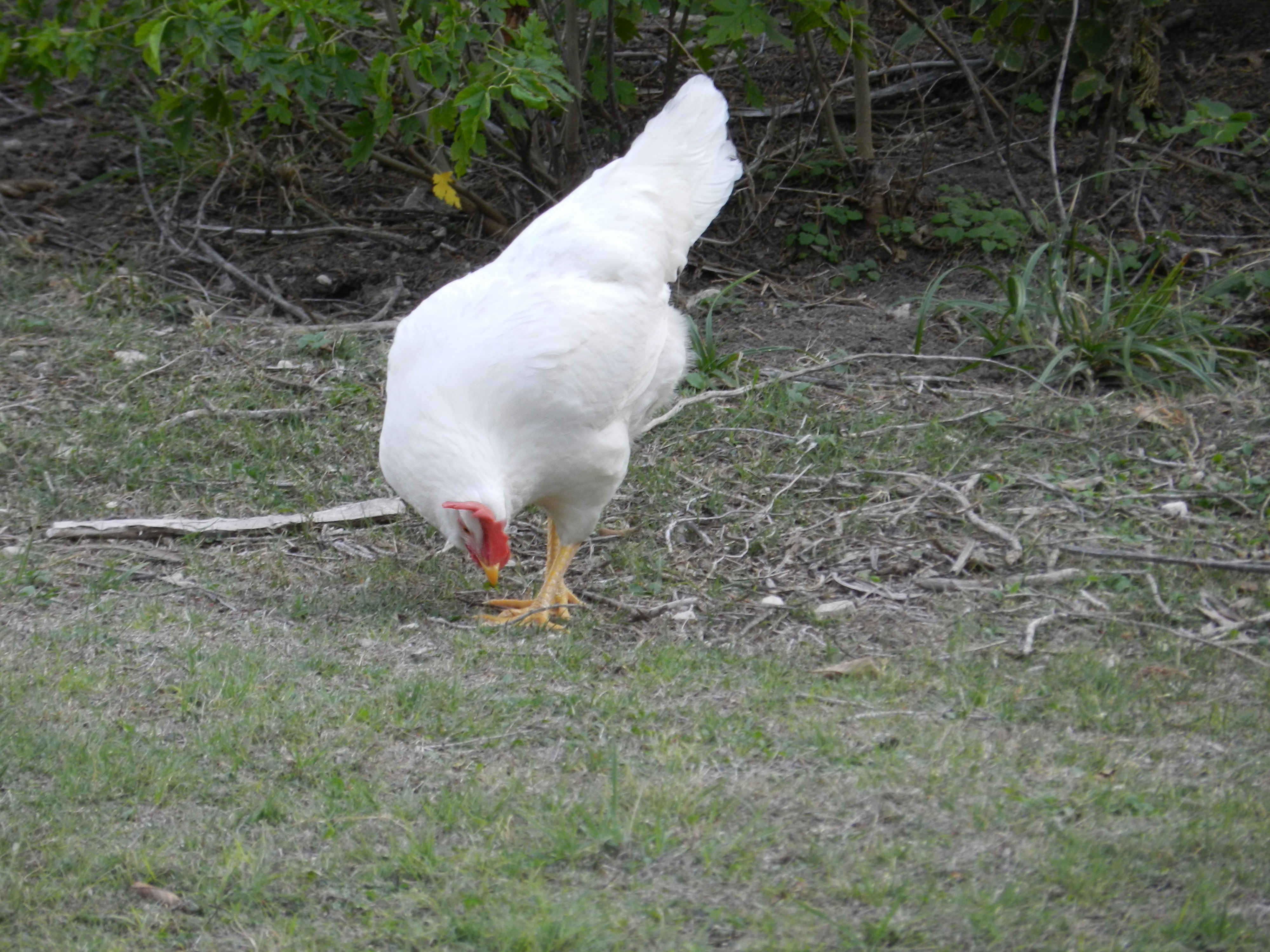
The London Blitz involved nine months of German bomber-induced devastation that drove people who lived in that city into a state of constant awareness regarding the location of the nearest bomb shelter. While the banks of Big Creek won’t echo with the drone of mechanical motors and sound of carpet bombs exploding one right after another, one locale faces a dive bombing hawk intent on scoring a fresh chicken dinner.
With its military-like forays, this bird of prey forced my six hens and one rooster into a life of focused attention unlike anything they’ve experienced before. Typically, these contented free-range fowl wander only as chickens can over acres of grassland searching out crunchy grasshoppers and other insects that go in the beaks as bugs and emerge from the other end as rich, yellow-yolked eggs.
Every since my flock came to this particularly relentless hawk’s attention, my once free- spirited hens now cower and creep about in the shadows of lilac bushes or tree rows around the property. When they hear the red tail’s distinctive high pitched “scree” or see its shadow, their contented clucks and cackles turn to strident squawks as they run for cover.
Even without stress, chickens don’t run gracefully—think miniature feathered and beaked dinosaurs lumbering frantically for safety. Awkward is the only way to describe their agitated movements. I must give the rooster some credit. After sounding his unique alarm, he stands back like a good commander to make sure his graceless harem reaches the safety of their hen house or protective shrubs.
The other morning our camouflage Jack Russell terrier and I took advantage of the cool temperatures to water flowerbeds. Intent on soaking plants, I barely noticed when Buster, our feisty watch dog, leapt up barking as he raced toward alarmed and noisy chickens about twelve feet away. Jumping to the wrong conclusion, I thought he was chasing a chicken. I scolded and called him back until I saw the red tail swoop down in an attempt to snag with its outstretched talons a young Rhode Island red.
Buster knew his duty. Ignoring his inattentive mistress, he yipped and leapt heroically after the invader’s signature tail. Inspired by his bravery and wanting to keep dog and chickens safe, I turned the hose into a water cannon and began spraying the whole noisy group. Under the veil of water, the little hen dashed desperately toward the lilacs while Buster sounded like Patton giving the Germans heck. At last, the raptor acknowledged defeat and turned to ride a thermal in the blue Kansas sky.
The war wasn’t over. I shooed the hawk away every day when he buzz bombed the yard. The chickens lived restricted lives as a form of self-preservation, and Buster, the watchdog, scanned the heavens like an air raid warden waiting for the next assault. Just as London survived the German Blitzkrieg, our hilltop also did due to the aid of a yappy terrier and garden hose artillery.
Native Kansan Karen Madorin is a local writer and retired teacher who loves sharing stories about places, people, critters, plants, food, and history of the High Plains.


